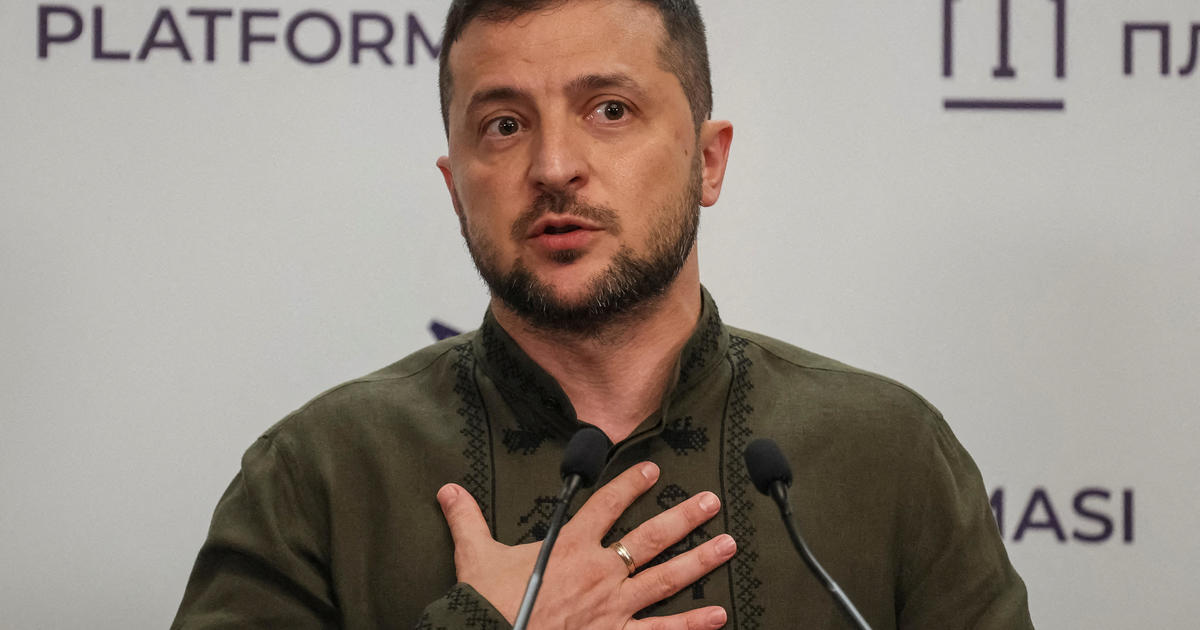CIA calls report of $100K payment to Russian "fictional"
The CIA is pushing back against reports that American spies attempted to retrieve sensitive documents from a shadowy Russian, and were offered documents alleging compromising information about Donald Trump.
The Intercept's James Risen first reported Friday that the U.S. intelligence community attempted to recover stolen NSA records related to hacking capabilities, and was working to repossess those records when Russians offered information about Mr. Trump and the 2016 campaign. A Russian who was working as a go-between for the Russians and the Americans asked the Americans for a payment, The Intercept reported. But the Americans were "ambivalent" about whether they wanted the documents allegedly related to Mr. Trump, Risen said on CBSN.
"It's a very complicated story," Risen said on CBSN Saturday. "First, the CIA and the NSA were trying to recover stolen NSA documents that allow people to do very sophisticated hacks, and they were worried that those documents would allow for really horrible hacks of American systems. So that was their main focus, was to try to buy back documents from the Russians on that. And in this process of conducting a secret channel with the Russians, some of the Russians began to offer documents related to Trump and to the 2016 campaign. And the Americans were very ambivalent about whether they wanted to get these documents, because they know how explosive this whole issue is."
"So there was a lot of back and forth between the Russians and the Americans about whether the Americans would even accept the documents about Trump," he said. "And so finally it appears that they accepted some, but their primary goal all along for the CIA and the NSA was to get these documents back from a group called Shadow Brokers."
Shortly after The Intercept published its story on Friday, The New York Times reported that a shadowy Russian who claimed to have the NSA cyberweapons and compromising information on Mr. Trump bilked the Americans out of $100,000 last year, citing American and European Intelligence officials. The Times reported that cash — government money, but routed through an indirect channel — was delivered to a Berlin hotel room in September of 2017.
Reacting to the story on Saturday, the CIA called it "fictional," saying the reporters who worked on it -- Risen and The New York Times' Matt Rosenberg -- were the ones who were "swindled."
"The people swindled here were James Risen and Matt Rosenberg," the CIA said in a statement provided to CBS News. "The fictional story that CIA was bilked out of $100,000 is patently false."
But Rosenberg, who wrote The New York Times story, said in a tweet later on Saturday, "@CIA is denying something we did not write - the @nytimes story does not specify CIA as source of funds, which we write came 'through an indirect channel.'"
President Trump also responded to the story but he had a different response, seeming to give credence to Times' report on Twitter.
"I hope people are now seeing & understanding what is going on here," he tweeted Saturday, despite his past references to The New York Times as "fake news."
"DRAIN THE SWAMP!" the president tweeted.
The Times reported that the Russian, early in the negotiations, dropped the asking price from $10 million to $1 million for the cyber tools and the Trump-related information.
U.S. officials had said the payment was intended to recover the alleged NSA materials and was abandoned after the Russian produced "possibly fabricated" information on Mr. Trump related to the 2016 presidential election and alleged ties between his associates and Russia, the Times reports. The U.S. agents reportedly considered the information "tabloid gossip pages" rather than intelligence gathering and ultimately terminated the deal. Several American officials said they did not want the alleged information about Mr. Trump.
The Times reports that the coveted cyberweapons were built to break into the computer networks of Russia and China, but wound up in the hands of a mysterious group called the "Shadow Brokers." The weapons have helped hackers breach millions of computers around the world, including hospitals, businesses and factories, the Times reports.
The Times claimed it obtained four of the documents the Russian tried to give to American intelligence, noting that the newspaper did not pay for the documents. The documents, according to the newspaper, discuss former Trump campaign aide Carter Page and billionaire GOP donors Robert and Rebekah Mercer. But the reports, according to the Times, draw almost entirely from publicly available news reports.
CBS News' Arden Farhi and Kathryn Watson contributed to this report.



